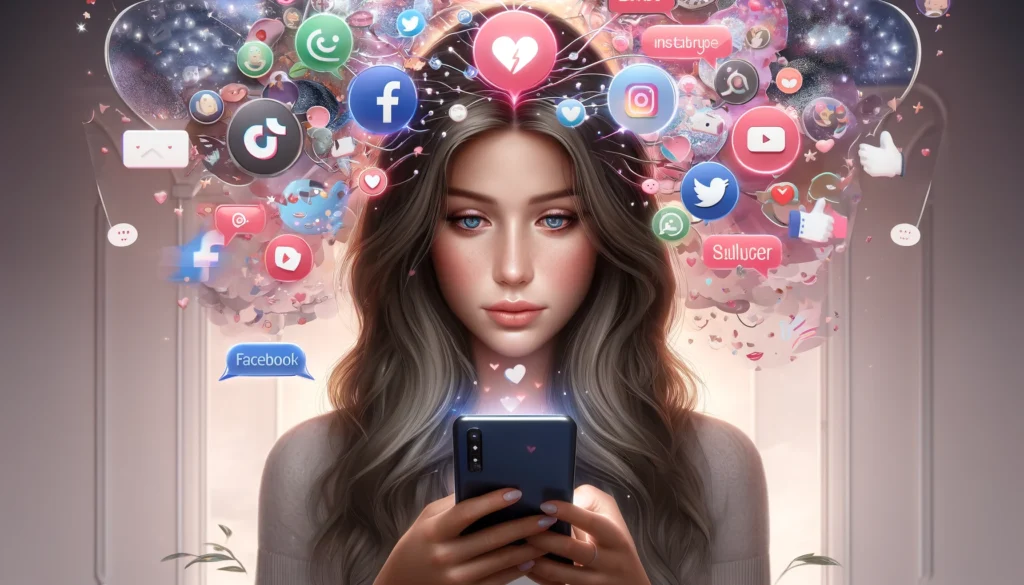
Today we will dive into what Impact of Social Media on Mental Health in this Blog Post. From there we will talk about the good and some of the bad and give you tips to ensure your mental health across the web is safe.
Social media deeply impacts mental health, transforming how we interact with others, distribute information, and perceive the world around us. Various social media websites such as Facebook, Twitter, Instagram, and TikTok have since become a part of the culture for many people. Although these platforms provide numerous benefits such as staying in touch, sharing information, and entertainment, they also pose challenges to mental health. Even though it has its advantages, using social media can make the way you feel worse.
It is a little of both, being joyful to stay connected but stressful in always comparing yourself. As a tool that can empower, but can also be abused — of us all. Next, is how you can optimize its benefits while protecting your mental health, let’s get into the details of the same.
Social Media and Its Usage
Social media is a catch-all term for platforms like Facebook, Instagram, Twitter, TikTok, and LinkedIn — you probably use one every day or at least have an account profile. These platforms facilitate the posting/share different posts amongst the users too with a connection creation some even get involved in online works like video sharing etc. According to recent statistics, there are more than 4.6 billion social media users worldwide, and the average user spends around 2.5 hours a day on social media. That extensive use makes it very important to know how it affects our mental health.
Social Media and Its Positive Impact On Mental Health
The above does not mean that social media takes a toll on mental health only. Here are some key benefits:
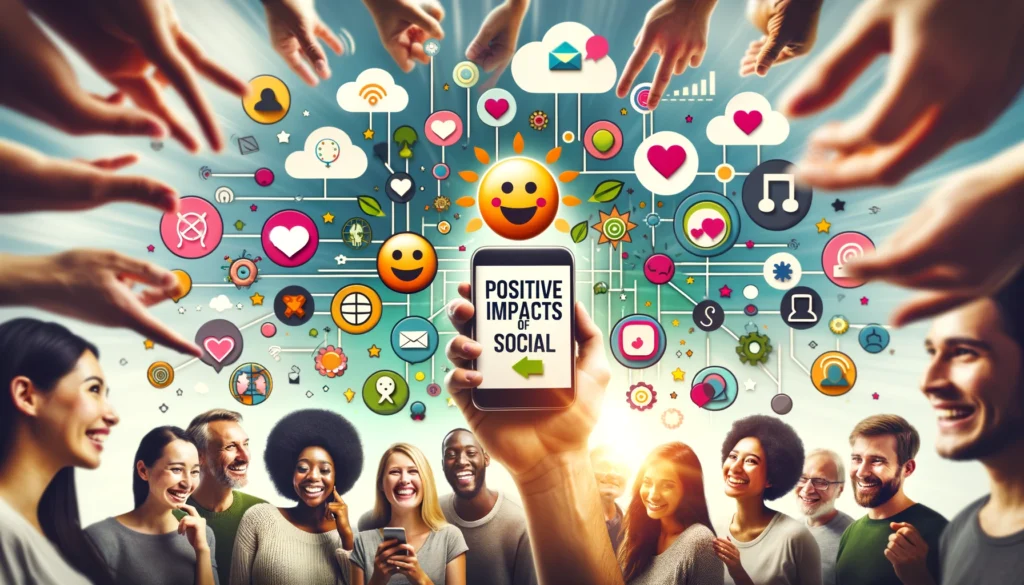
1. Support networks and Social Connectivity
Social media allows people to connect despite geographical distances. For years social media has been a way for many to feel connected, to loved ones, and the community, especially for those far away. It even has support networks for individuals looking to trade stories and get advice.
2. Access to mental health resources
Mental health awareness resources and tools to explore on social media connect users to educational materials, support groups, and mental health professionals. This might be especially helpful for people not seeking help through other traditional channels.
3. Ways to express themselves:
Applications such as Instagram and TikTok serve as outlets for personal expression and creativity. Telling your own stories, showing your art, and sharing your achievements make you proud and increase your self-esteem.
4. Awareness and Advocacy:
I have noticed on social media that it has been great in getting mental health out there. Specific campaigns and hashtags like #MentalHealthAwareness and #BreakTheStigma help break the silence on mental health thoughts and activism is a large catalyst in reducing mental health stigma.
Social Media and Its Harmful Impact On Mental Health
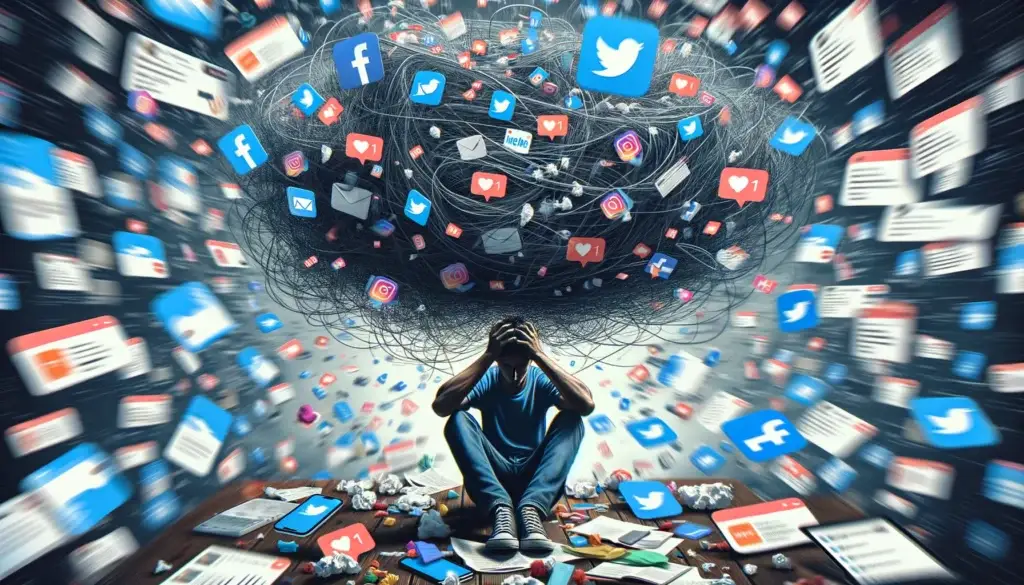
As much emphasis as the positive points get, it is essential to recognize how bad social media effects are on mental health.
1. Cyberbullying & Online Harassment:
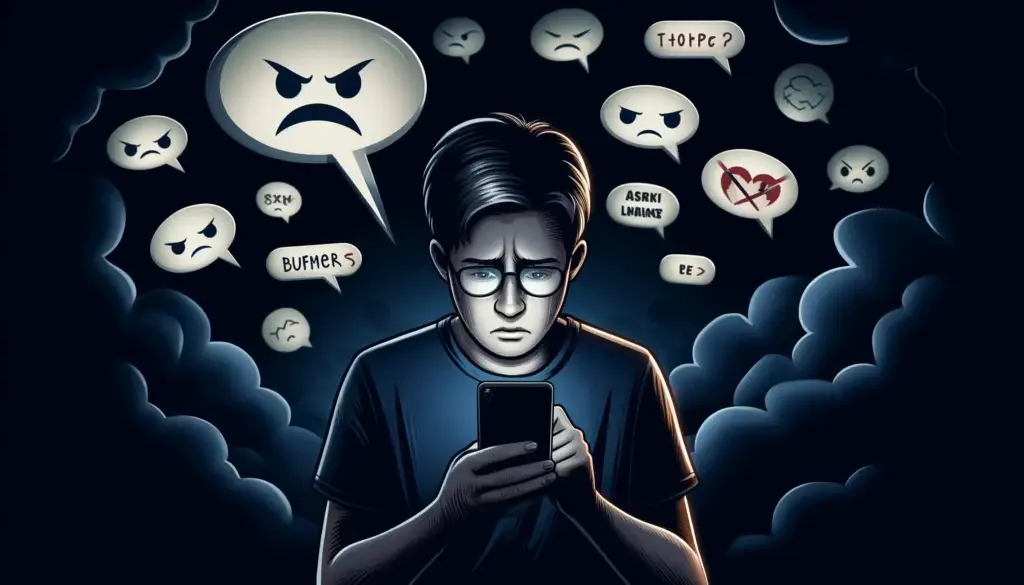
Social media is rife with cyberbullying. Cyberbullying can cause victims to experience significant mental health problems, including anxiety, depression, and suicidal tendencies. This can create a toxic cyberbullying experience, where the back-and-forth is often intensified due to the anonymity of social media.
2. Social Comparison + Low Self-Esteem
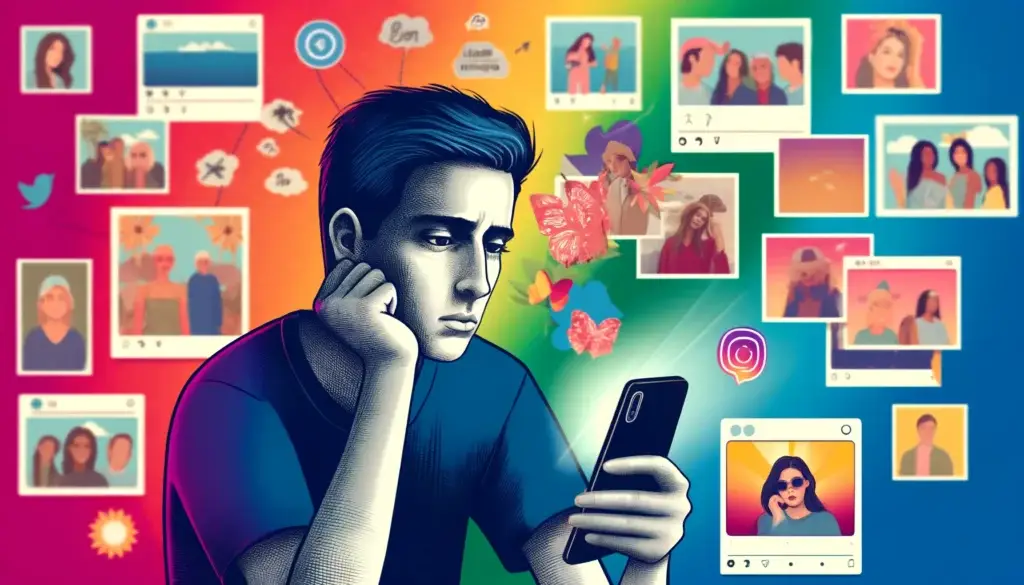
Student life is rough in a million ways, and the glamour of social media, with its highlight reels, just rubs salt in that wound. When people live vicariously through perfectly orchestrated social media posts, their own lives may seem inadequate or inadequate by comparison. This can be telling on teenagers, who at this time are still establishing their self-identity etcetera.
3. Anxiety and Depression:
The links between social media use and anxieties have been long established: Anxiety and depression can also arise from constantly watching bad news, FOMO, and the need to be everywhere online all the time. Studies show that high use of social media greater risks for depression, anxiety, and mental illness in general
4. Social Media Addiction:
The danger of social media addiction is that those addicted to social media can undergo withdrawal symptoms, and the urge to check accounts perpetually, and they prefer online interaction to real-life interaction. This addiction may lead to sleep interruptions, less productivity, and a liability for stress.
Research and Case Studies
There have been many studies that have looked into the influence of social media on mental health. A Royal Society for Public Health study in the UK, for example, found that Instagram and Snapchat were the worst for mental health in young people. Higher levels of anxiety, depression, and FOMO were linked to the use of these platforms. By contrast, YouTube was shown to be a force for good, with a strong emphasis on its educational content and a stronger sense of community.
Personal stories have also revealed the two-fold nature of social media. Some have shared their own experiences embracing a newfound support and community online, and others have spoken about the trappings of cyberbullying and social comparison.
Tips for Keeping Your Mental Health in Check with Social Media
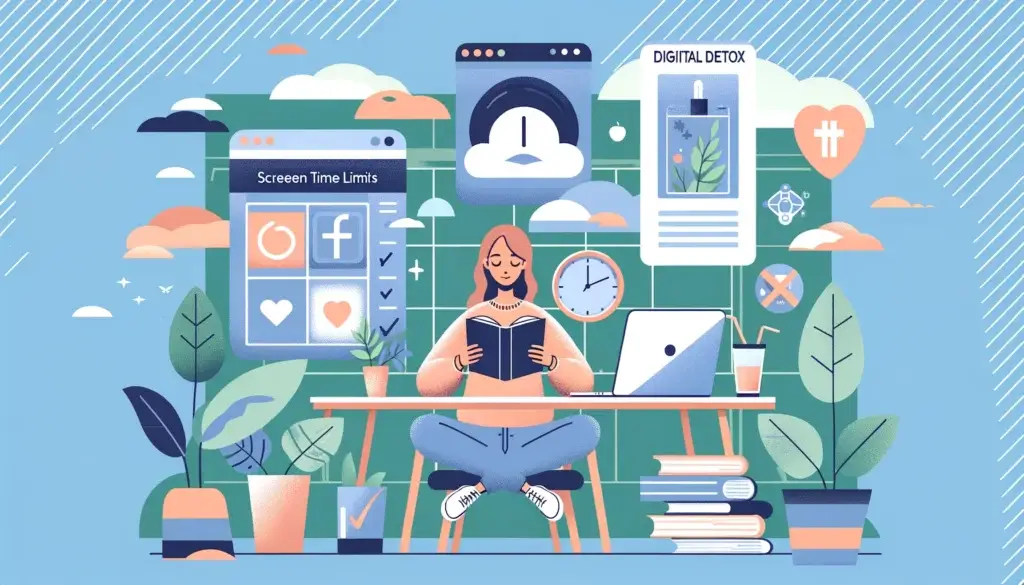
Because social media can be so damaging to our mental health, it is crucial to have effective social media tips to stay in control of it. Here are some practical tips:
1. Establishing Boundaries and Time:
Limit Social Media Social media is a double-edged sword. Tools such as screen time monitors and app usage trackers can also be helpful. Understand To Better Allocate Your Time: Assigning Specific Times Of The Day To Social Media And Avoiding It Before Bed Will Improve Your Mental Wellbeing.
2. Maintain a Positive As Well as a Responsible Social Media Environment:
This way, feeling inspired, learning new things, giving to those in need, etc while on social media becomes like the air you breathe. A simple (and very tried and tested) strategy is to unfollow or mute any accounts that immediately evoke feelings of negativity.
3. Practicing Digital Detox:
Also, digital detox from social media, which involves disconnecting mentally for a while, can improve general welfare. Participating in offline activities like hitting the beach or the gym, or reading a book, can be refreshing.
4. Seeking Professional Help:
If mental health is taking a massive hit because of the use of social media, one needs to get professional help. Coping Strategies & Support on the Personal Level: Individuals who need help with coping can work with therapists or counselors who would be able to provide coping strategies and also provide them with the right kind of support they need based on their requirements.
Parents, Educators, and Policymakers PLAYBOOK
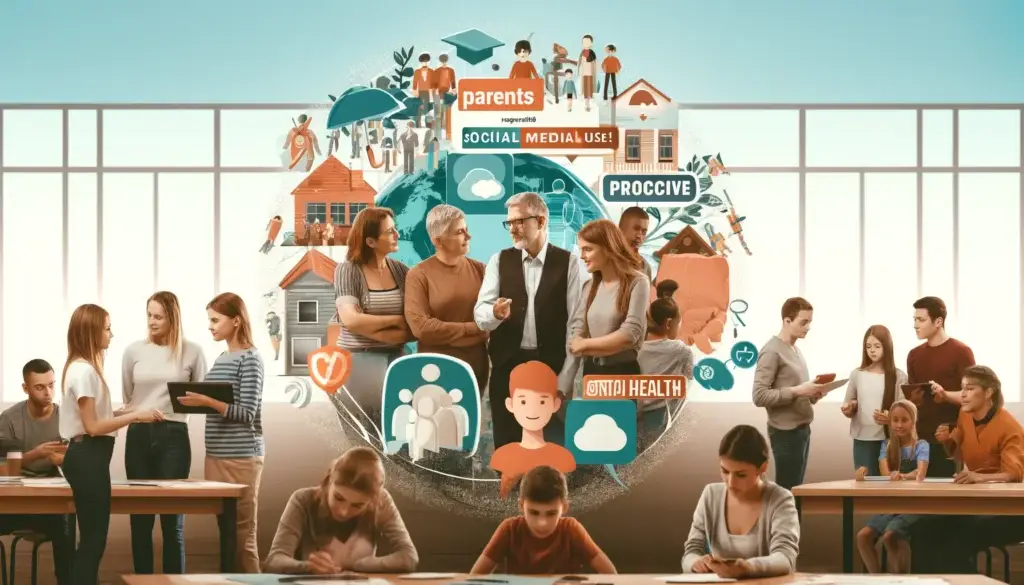
All of us are responsible for a healthy social media relationship. Responsible social media use falls on a spectrum that ranges from the individual to our institutions, and we are all responsible for it.
1. Educating Young Users:
Teaching young children the possible risks and rewards of social media is a service that parents and educators alike can provide. Opening up a dialogue and communication between what children and teens can share — and possibly provide anonymity.
2. Introduce Protective Measures
We need policies that can protect users against cyberbullying and harassment. Platforms must maintain rigorous reporting protocols and supply resources for targeted users.
3. Mental Health Awareness Campaigns
Mental health awareness campaigns should be encouraged in schools and community centers. Once individuals are empowered to get help when they need it, giving the help and support resources for mental health.
Conclusion
Social media has both benefits and drawbacks for mental health. While social media provides ways to connect, seek support, and express oneself, it also comes with risks associated with cyberbullying, social comparison, and addiction. We can treat some of the dangers of the digital landscape by following tips for healthy social media practices and talking to somebody when we need some help. However, navigating on the internet is difficult stuff and might be damaging our mental health.
Additional Resources
These resources may be helpful for those who want to see more examples and look for assistance:
1. Organizations / Helpline (Mental health):
You can visit the National Alliance on Mental Illness (NAMI): nami. Org
Mental Health America: mhanational. Org
Crisis Text Line: Text HELLO to 741741
2. Suggested Additional Readings and Related Study Topics
Deeply Digital Minimalism- Cal Newport
“Irresistible” by Adam Alter
Articles in Journals such as the Journal of Adolescent Health and Cyberpsychology, Behavior, and Social Networking are related to how social media affects mental health.

